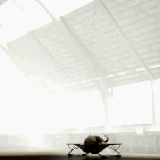Results Of The Probe On Chiang Mai Tourist Deaths And Illnesses: Update 5
By
webfact
in Thailand News
-
Recently Browsing 0 members
- No registered users viewing this page.
Announcements
-
-
Topics
-
Popular Now
.png.3b3332cc2256ad0edbc2fe9404feeef0.png)
.thumb.jpg.bc523c85a8d558dbc282dca7a2e602c9.jpg)



Recommended Posts
Create an account or sign in to comment
You need to be a member in order to leave a comment
Create an account
Sign up for a new account in our community. It's easy!
Register a new accountSign in
Already have an account? Sign in here.
Sign In Now